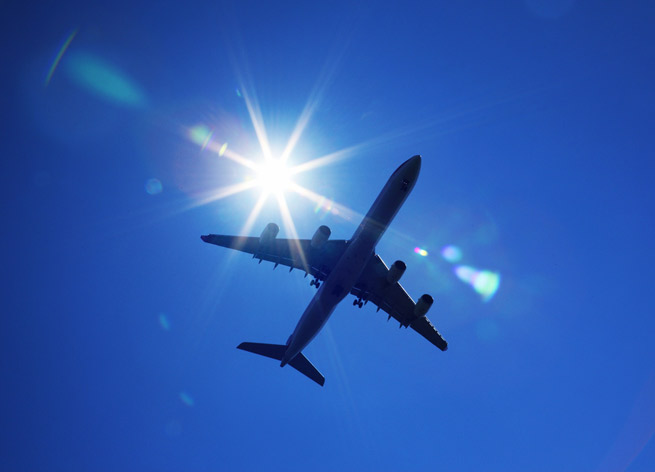A panel tasked with exploring relaxed gadget rules on airplanes now says that Wi-Fi is safe to use throughout an entire flight, the Wall Street Journal reports.
The news comes after the FAA panel also recommended that use of electronic devices — including tablets, smartphones, e-readers, and laptops — be allowed throughout entire flights. Currently, airlines only let flyers use their gadgets and in-flight Wi-Fi once they hit a cruising altitude of 10,000 feet, ostensibly due to worries that they would affect flight navigation equipment.
“The vast majority” of airplanes “are going to be just fine,” Paul Misener, Amazon’s vice president of global public policy and a member of the FAA panel, told the WSJ.
Current in-flight Wi-Fi systems from Gogo and others only turn on after planes reach 10,000 feet. Gogo notes that its technology isn’t optimized for use below that altitude, but competitors like Panasonic Avionics say that their solutions could work during all portions of flight.
The recommendation is yet another stab at the draconian FAA rules restricting electronics, which have been criticized for not keeping up with the rapid pace of consumer technology over the past few years. Rather than rigorously test the effect of modern gadgets and computers on aircraft, an expensive and time-consuming process, the FAA took a “better safe than sorry approach” to establishing its restrictions.
Another member of the FAA panel points out that aircraft already approved for Wi-Fi use, which the WSJ says currently make up 60 percent of commercial US aircraft, could be approved for portable gadgets with little or no testing. Those airplanes already went through extensive testing just to get Wi-Fi capabilities.
While Wi-Fi restrictions could be relaxed, the FAA panel notes that it’s still recommending that cellular voice and data be disabled, due to FCC rules against airborne cellular usage. Still, the panel is urging the FAA to take another look at those rules with the FCC.
The full report from the FAA panel, which is said to include more than two dozen recommendations, is expected to be released soon. Then we’ll just have to wait and see if the FAA actually heeds those recommendations. Approved changes could take affect by 2014, but don’t be surprised if we see many of them delayed well into next year.
VentureBeat's mission is to be a digital town square for technical decision-makers to gain knowledge about transformative enterprise technology and transact. Learn More

